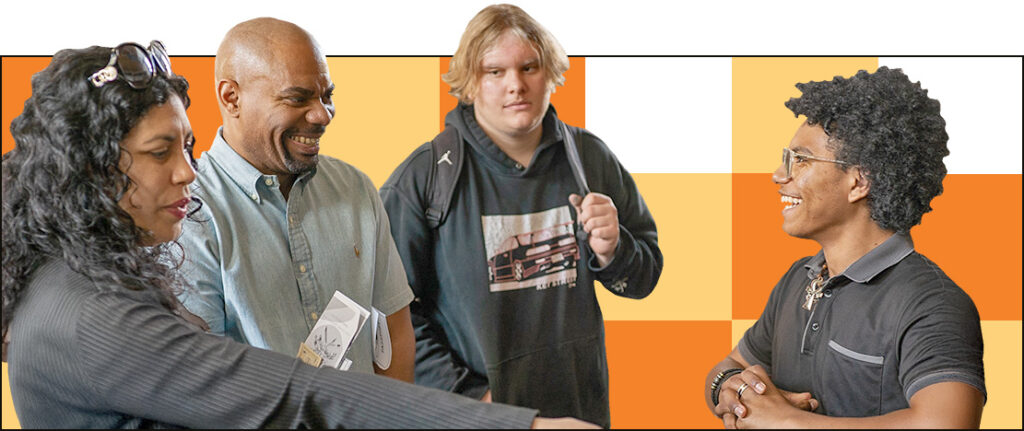


learn more about

learn more about

events

events



learn more about

learn more about











For this 10th Grade Humanities project, students studied the basics of psychology, reading various non-fiction texts and interacting with guest speakers, before choosing individual topics to explore in depth. Based on these topics, each student had to create an original (and ethical) experiment to perform on sixth-grade students, create and illustrate an explanatory handout so that the subjects would understand the concept that was tested, and write and illustrate an original article about the concept’s real-world applications.
I remember how excited I was to take a psychology course during my first year of college. The discipline tapped into my adolescent curiosity, and it supplemented so much of what I had learned in my “core classes” in high school. Similarly, my high school students loved any psychological concepts I discussed in my class. So, I decided to design a project with psychology at the core. The topics that they chose, such as conformity, stereotyping, multitasking, dreams, morality, motivation, and so on, made them reflect on their own lives and on content from other subject areas. Their experiments also allowed them to creatively play with the scientific method and learn about ethical experimentation.
During the Psycarnival project, the class learned about psychology and how it relates to our lives and to current events. We put on a carnival in which we conducted experiments that we created. We then collected data from our experiments and analyzed them. I looked into different mindsets and how they affect people’s motivations. I came to school every day excited to work. I learned a lot about mindsets and Carol Dweck’s theory of how they affect people’s motivation.
—Matthew Hansen
I researched a psychological theory called the Paradox of Choice. It sheds light on the issues we face when trying to pick one option from a group of many choices. To study this topic, I read a book written by Barry Schwarrz, the creator of the theory and took notes on his TED talks. In the end, I was left with very useful information that I get to apply to my own life
—Mauro Chavez

For this 10th Grade Humanities project, students studied the basics of psychology, reading various non-fiction texts and interacting with guest speakers, before choosing individual topics to explore in depth. Based on these topics, each student had to create an original (and ethical) experiment to perform on sixth-grade students, create and illustrate an explanatory handout so that the subjects would understand the concept that was tested, and write and illustrate an original article about the concept’s real-world applications.
I remember how excited I was to take a psychology course during my first year of college. The discipline tapped into my adolescent curiosity, and it supplemented so much of what I had learned in my “core classes” in high school. Similarly, my high school students loved any psychological concepts I discussed in my class. So, I decided to design a project with psychology at the core. The topics that they chose, such as conformity, stereotyping, multitasking, dreams, morality, motivation, and so on, made them reflect on their own lives and on content from other subject areas. Their experiments also allowed them to creatively play with the scientific method and learn about ethical experimentation.
During the Psycarnival project, the class learned about psychology and how it relates to our lives and to current events. We put on a carnival in which we conducted experiments that we created. We then collected data from our experiments and analyzed them. I looked into different mindsets and how they affect people’s motivations. I came to school every day excited to work. I learned a lot about mindsets and Carol Dweck’s theory of how they affect people’s motivation.
—Matthew Hansen
I researched a psychological theory called the Paradox of Choice. It sheds light on the issues we face when trying to pick one option from a group of many choices. To study this topic, I read a book written by Barry Schwarrz, the creator of the theory and took notes on his TED talks. In the end, I was left with very useful information that I get to apply to my own life
—Mauro Chavez